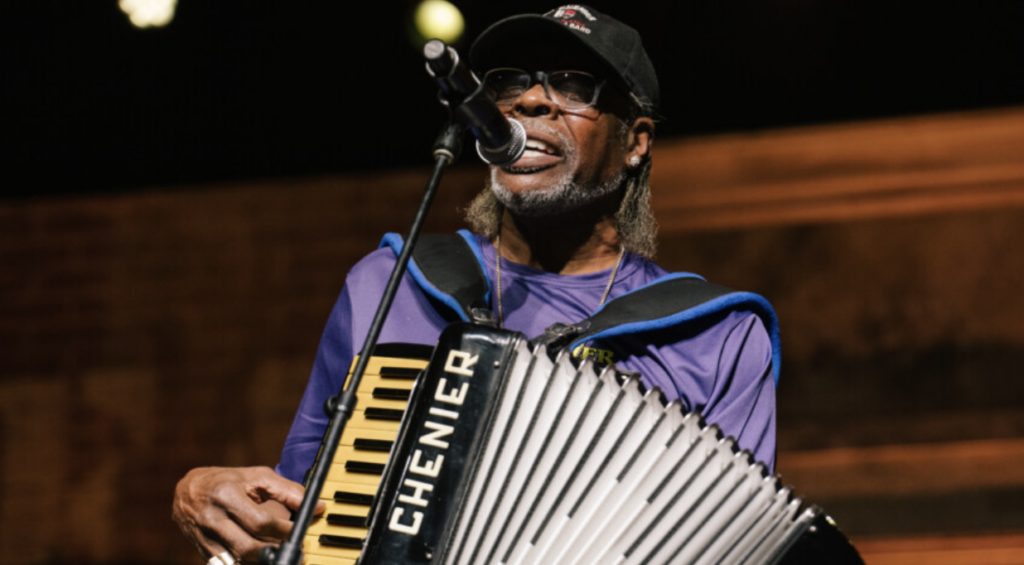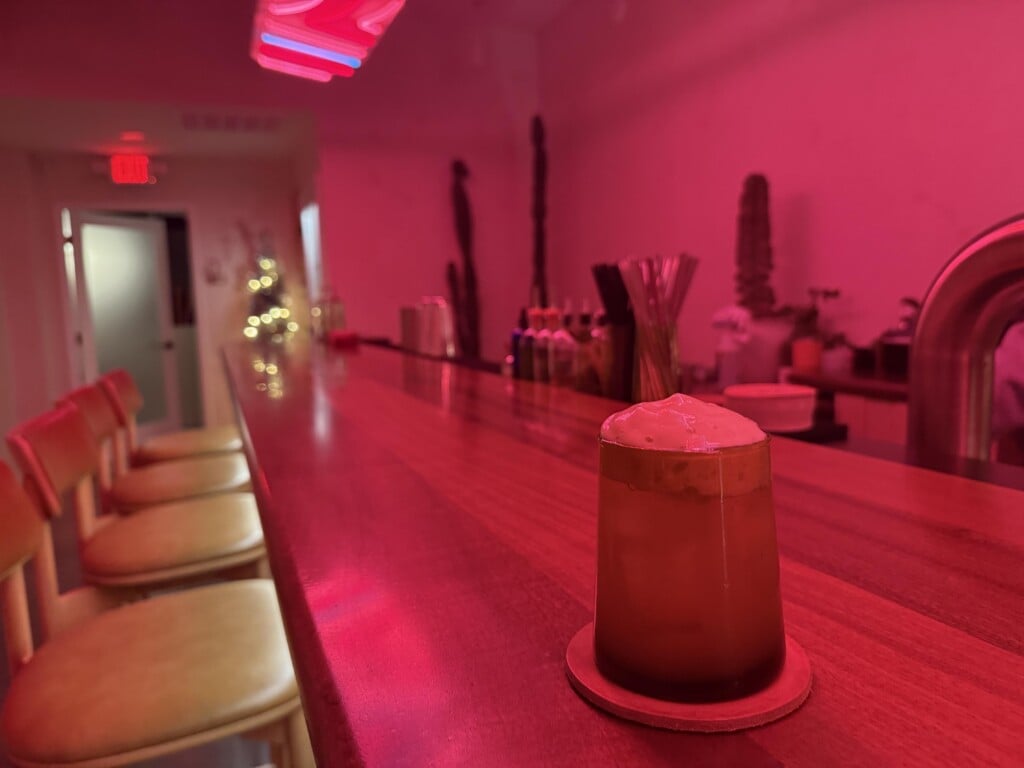Pro Choice

This Christmas, Steve and Shayla King won’t be worshipping at Visitation Church.
The Kings have been attending Mass at Visitation for 30 years. The couple were married in its sanctuary in 1969, and they officially joined the venerable Brookside parish in 1974. Their three kids went to grade school there before going on to Rockhurst. One of those kids married his wife at Visitation in January 1999. Shayla was a Eucharistic minister, serving communion to her fellow parishioners for 20 years. For the past decade, Steve sang in the choir.
The family always planned its holiday celebrations around midnight Mass, Steve King says. “We’d always open with 30 minutes of Christmas music before the service. Some of it was the choir only, and some of it was the whole congregation. Visitation would always hire strings and brass and timpani, and, at some point, if you didn’t have the goose bumps, you knew you were going to get them soon.”
This season, though, the Kings are new members of Country Club Congregational United Church of Christ, off Brookside Boulevard at 65th Street. The small white building with the Christmas-card steeple looks like something Norman Rockwell would have painted. The story of how the Kings ended up there, though, feels like a sad tale of how twisted things have become in the last year, culminating on November 2.
The Kings are private people, and they have reservations about telling their story. After all, they’re not trying to provoke anyone.
It’s just that they were provoked. And, Steve King says, “When provoked, I normally respond.”
Last spring, King grew concerned over national news about how some bishops on the East Coast and in Colorado Springs were talking about denying communion to pro-choice candidates. In May, he sent a letter to Bishop Raymond Boland, head of the Diocese of Kansas City and St. Joseph.
His letter expressed a prayer: that Boland resist telling area Catholics how they must vote in order to remain in communion with the church. “When we employ litmus testing, we are nothing more than the results of that testing,” King wrote. “The politicians will take advantage of us … to the detriment of our real message.”
King, a lawyer who runs a small Westport practice, made himself clear. “To my way of thinking, voting is never sinful and cannot be made so by word on high — whether from Colorado Springs, Kansas City, Boston or even Rome.”
He shared the letter with Visitation’s priest, Father Norman Rotert, and a small circle of confidants. But he heard nothing back from Boland. When pledge time came, King wrote a second letter. “I wasn’t going to make a pledge to the church or the diocese for this year because I hadn’t heard a response,” King says. “I wanted to make sure that he had my address and phone numbers.”
While King spent the summer marking Boland’s silence, bishops around the country weighed in on the morality of John Kerry’s stand on abortion, as well as gay marriage and stem-cell research.
Boland finally wrote a letter, but it wasn’t to Steve King. In early October, he and the diocese’s bishop-in-waiting, Robert W. Finn, issued their “Pastoral Letter on Election 2004.”
The two-page, single-spaced missive claimed that the Catholic Church in the United States had never endorsed political candidates and wasn’t doing so now. It did, however, remind readers “to vote as faithful Catholics,” regardless of political parties.
Ominously, the bishops warned: “The Christian who shirks his temporal duties shirks his duties toward his neighbor, neglects God Himself, and endangers his eternal salvation.”
[page]
There were reminders about the church’s opinions on abortion, about “the abuse of scientific research” as it pertained to embryonic stem cells, about laws that “seek to redefine marriage and undermine the family.” The letter made less forceful references to avoiding war and capital punishment before returning to a bold-face admonition that being “right” about such issues as racism, poverty and hunger “can never excuse a wrong choice regarding the attacks on innocent human life.”
The Kings realized that the Catholic Church had issued a threat.
“You can say to the people, ‘In this society, this is what we believe and how we’re going to vote.’ That’s called leadership,” King explains. “It’s not the right way to lead to say, ‘This is our position, and this is how you must vote.’ That is called intimidation.”
So the Kings left the church where they’d worshipped for 30 years.
At first, their anger and sadness were palpable.
“These are people who care deeply about family, faith, neighborhood, preferential treatment for the poor, justice. These are terribly, terribly moral people,” says Jim Caccamo, a member of St. Peter’s Parish and a friend with whom King shared his letters to Boland. “That’s what hurt me so much, too, was to see the pain that Steve and Shayla had around this issue.”
Rotert encouraged the Kings not to leave. “I regret it,” he says of their departure from his parish. “And my feeling is, the bishops were taking a partisan position. I did not hold to that position.”
Many Catholics felt the election’s intense focus on abortion, gay marriage and stem-cell research resulted in “an extremely limited concept” of morality, Rotert says.
“We have in our theology a stance around life that is broader than just those few issues that were part of the election,” Rotert says. “Health care for everyone, adequate income, job opportunities, decent housing — all of those are also life issues that are supported by Catholic theology, but there was not much discussion of those in this last election.”
Looking back, Shayla King says, the bishops’ dictates were just their final push out the door.
“We’re still hurting over the pedophile priests, the lack of the church’s opening up to women in the clergy, married people in the clergy, gay people, divorce, all those other issues that the bishops and the pope don’t want to seem to deal with,” she says. Steve King says a feeling of “spiritual estrangement” had been building for years.
Steve King is pretty sure that it’s not news when a family leaves a church. That happens all the time.
But like the Kings, many people — maybe everyone in the whole damned country, whether they know it or not — will feel the effects for the foreseeable future of one political party’s slickly manufactured definition of morality.
And in Brookside, word of one family’s decision to leave Visitation Church after 30 years is starting to get around. It’s a neighborhood where the Catholic Church’s influence on Kansas City is obvious.
“In urban areas where the school districts are troubled, Catholic families have been able to remain in the cities and send their kids to Catholic schools,” says Ed Scanlon, who grew up in the St. Catherine of Siena Parish in South Kansas City and is now an associate professor of social welfare at the University of Kansas. “If you look, for example, at South Plaza, Brookside, Waldo, Westport, you have some Catholic families who have stayed in the city, and I think that strengthens the cities.” And, Scanlon notes, Catholic schools often remain in urban neighborhoods even without a large Catholic population on their rolls.
[page]
That added yet another moral dilemma for inner-city parents this fall, several of whom tell me that when their Protestant kids, their Jewish kids or even their liberal Catholic kids raised hands for John Kerry in mock elections, they were called “baby killers” and other names by their fellow students.
In the real election, it was the parents who taught their kids that kind of noble behavior. Post-November 2 analysis suggests that, reversing their usual Democratic leanings, it was really Catholics who handed Bush his victory, not the predictable evangelicals.
So the Kings went looking for a new spiritual home. “We didn’t waste several Sundays sitting at home feeling sorry for ourselves,” Steve King says. After trying out a few midtown churches, they ended up at Country Club Congregational the first Sunday after the election.
“The minister, Susan Thorne, stood up, and the first thing she said in her sermon was, ‘It’s been a really tough week.’ And I was just — they had me,” Shayla King says. “I just was very impressed with the inclusiveness of the congregation. We looked around, and there was a lesbian couple with three mixed-race children, and I just, I had a real feeling of warmth and caring.”
Unlike their old church, the Kings’ new one has been doing the hard work of examining a wide range of life’s moral dilemmas for years.
“This congregation intentionally went through a process in the ’90s in deciding whether to become an opening and affirming church for gay, lesbian and transgendered people,” Thorne tells me. Deciding to welcome and affirm gay and lesbian people made the congregation aware of how important it is to include everybody, Thorne says.
“During the election, we were very careful to talk about issues but not to take a stand on candidates,” she says. “That was extremely important, and to raise the issues that morality covers, considering our interest in social justice — poverty, war and the effects of war, all the issues surrounding race and any kind of discrimination, child care…. Certainly this congregation has people with differences of opinion. We have people of both political parties in this church, and we respect all opinions.”
But even now, the Kings haven’t found sanctuary from the pressures now tightening the separation of church and state.
Country Club Congregational is, it turns out, a United Church of Christ. You know, the denomination that tried to run those oh-so-controversial commercials in which skinheaded bouncers turn away all seekers except for the perky one-man, one-woman, two-kids white family they let through the velvet rope. The commercials that CBS and NBC banned from the people’s airwaves last week.
The official statement from CBS referred directly to George W. Bush’s policies in explaining why the ad wouldn’t run: “Because this commercial touches on the exclusion of gay couples and other minority groups by other individuals and organizations, and the fact the Executive Branch has recently proposed a Constitutional Amendment to define marriage as a union between a man and a woman, this spot is unacceptable for broadcast on the [CBS and UPN] networks.”
Which sounds dangerously opposed to a sacred idea upon which this country was founded: that the government “shall make no law respecting an establishment of religion, or prohibiting the free exercise thereof; or abridging the freedom of speech, or of the press; or the right of the people peaceably to assemble, and to petition the government for a redress of grievances.”
[page]
When TV networks censor churches because they oppose government policies, the problem has gone way beyond communities of faith — it affects all Americans, regardless of religion.
Last week’s news reported that membership in progressive churches like the United Church of Christ has declined over the past few years. But thanks to the country’s current “moral” climate, Country Club Congregational has two new souls.




